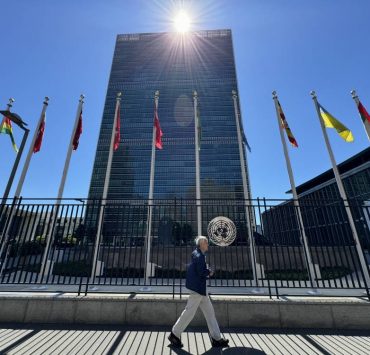SC: 2nd placer in local polls can’t take place of DQ’d winner

The second placer in local elections cannot be proclaimed winner in lieu of the disqualified first placer, the Supreme Court has ruled, abandoning an earlier doctrine that it said had no legal basis.
A legal expert sought for comment said the ruling, which cites the Local Government Code (LGC), does not apply to congressional candidates.
“[T]he Court hereby abandons the second placer rule and declares that the rules on succession under the LGC (Local Government Code) shall apply in all cases where a permanent vacancy results from a local elective official’s disqualification from office regardless of the proceedings involved,” the high court said in a 37-page decision on the case of Datu Pax Ali Mangudadatu v. Commission on Elections (Comelec), or G.R. Nos. 260219 and 260231.
The high tribunal said this refers to the rules on succession under Section 44 of the LGC, which covers permanent vacancies in the offices of the governor, vice governor, mayor and vice mayor, and Section 45, which applies to permanent vacancies in the sanggunian or councils.
“No law authorizes the proclamation of the second placer in the elections in case the candidate who received the most votes is disqualified or turned out to be ineligible,” the Supreme Court en banc said in the ruling promulgated on April 22 and made public on Friday.
The decision was written by Associate Justice Samuel Gaerlan, with eight members of the high court voting in favor to abandon the second placer rule, five on the contrary and two having no part.
“The majority abandoned the second placer rule for lack of legal basis and for being inconsistent with the essence of republicanism,” the Supreme Court said.
Different case
According to University of the Philippines law professor Dante Gatmaytan, it can be argued that the Supreme Court’s ruling does not apply to the House of Representatives, as in the case of outgoing Manila Rep. Benny Abante, who was recently declared as the “only qualified candidate” after his opponent’s proclamation was voided.
“The (Mangudadatu) case held that succession under the (LGC) will apply to fill the vacancy. There is no such mechanism with respect to members of the House,” Gatmaytan, who teaches local government law, told the Inquirer on Sunday.
He noted that the Supreme Court may have to promulgate a ruling to clarify the application of the Mangudadatu case to national elective office.
The high court said that the second placer rule “undermines the people’s choice in every election and is repugnant to the people’s constitutional right to suffrage.”
Regardless of whether it’s a disqualification, denial or cancellation of certificate of candidacy (COC) or quo warranto, the Supreme Court said the second placer cannot be proclaimed winner because, as pointed out by Associate Justice Benjamin Caguioa, “the common denominator … is that a permanent vacancy is left by the removed elected official.”
Consistent view
The Supreme Court extensively discussed jurisprudence as early as 1929 in the case of Nuval v. Guray, which showed that even before the enactment of the Omnibus Election Code, the high tribunal had almost consistently held that the second placer in the elections cannot be declared winner notwithstanding the ineligibility or disqualification of the candidate receiving the majority vote.
“The second placer is just that, a second placer who lost the elections,” it pointed out.
However, in 2012, the high tribunal made a complete turnaround in the case of Jalosjos v. Comelec and declared that its previous decisions applying the second placer rule should be limited to situations where the COC of the first placer was valid at the time of the filing.
Otherwise, if the COC is void ab initio, then the person who filed such was never a candidate and all the votes for the non-candidate are stray votes and thus the said candidate can never be a first placer.
In overturning the Jalosjos ruling, the Supreme Court said it “cannot impose upon the electorate to accept as their representative the candidate whom they did not choose in the elections.”
“The importance of the people’s choice must be the paramount consideration in every election, for the Constitution has vested in them the right to freely select, by secret-ballot in clean elections, the men and women who shall make laws for them or govern in their name and behalf,” it said, citing the 1985 case of Geronimo v. Ramos.
Motion for reconsideration
In a message to reporters, Comelec Chair George Garcia said that “since the decision is not yet final, we will reserve in the meantime our comment.”
He said the poll body is considering a motion for reconsideration.
The new doctrine stemmed from the petition for certiorari of Pax Ali Mangudadatu, who challenged the Comelec decision and resolution that canceled his COC for Sultan Kudarat governor in the 2022 elections after he was accused of false representation regarding his residence.
Mangudadatu was the incumbent mayor of the municipality of Datu Abdullah Sangki, Maguindanao, when he filed his COC in Oct. 7, 2021, as provincial governor for the 2022 polls.

















